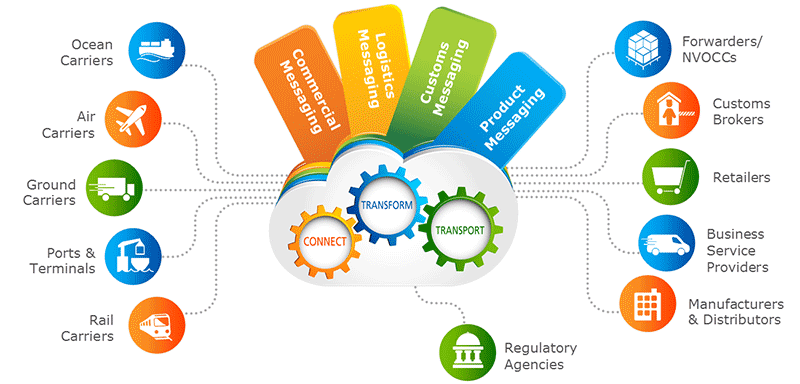海运货物鉴定书与MSDS鉴定书——国际运输安全的核心文件
一、海运货物鉴定书与MSDS的核心定义
海运货物鉴定书(Transport Condition Identification Report)
海运货物鉴定书是评估货物是否符合国际海运安全要求的专业报告,依据《国际海运危险货物规则》(IMDG Code)等法规,确定货物是否属于危险品,并明确其包装、标记、运输条件等安全措施
- 适用场景:海运、空运、公路及铁路运输,但每份报告仅针对一种运输方式
- 有效期:通常为1年,需每年更新
MSDS(Material Safety Data Sheet)
MSDS是化学品安全技术说明书,提供化学品的理化性质、毒性、存储及应急处理等信息,用于全生命周期(生产、运输、使用)的安全管理
- 适用场景:全球通用,无需样品检测,可由厂家或第三方机构编制
- 有效期:无固定期限,但需随法规或产品成分变化更新
二、两者的核心区别
| 对比维度 | 海运货物鉴定书 | MSDS |
|---|
| 用途 | 运输安全评估与合规性验证 | 全流程化学品安全信息传递 |
| 内容侧重点 | 运输分类、包装要求、相容性 | 成分、危害性、急救措施等16项内容 |
| 编制依据 | IMDG Code、GHS等国际运输法规 | GHS、GB/T 16483等全球标准 |
| 出具机构 | 专业检测机构(需寄送样品) | 厂家或第三方服务机构(无需样品) |
| 适用范围 | 仅针对运输环节(如海运) | 生产、储存、运输、使用全环节 |
三、哪些产品需要办理?
海运货物鉴定书:
- 危险品(如锂电池、腐蚀性液体)
- 特殊货物(如粉末、磁铁、含电池设备)
- 法规模糊的化工品(需明确是否为普货)
MSDS:
- 所有化学品(包括危险品和非危险品)
- 电池类、化妆品、工业原料等
四、办理流程与注意事项
海运货物鉴定书:
- 步骤:申请→寄样→检测→报告审核→签发
- 费用:约900-1200元/份,加急1-3个工作日
- 材料:样品、成分表、包装信息
MSDS:
- 步骤:填写成分表→委托编制→审核→签发
- 费用:500-2000元,语言和法规复杂度影响价格
- 材料:化学品成分、生产工艺、企业信息
注意事项:
- 海运鉴定书需选择具备资质的机构(如广分检测中心)
- MSDS需确保信息真实,虚假成分可能导致运输风险
五、为什么两者缺一不可?
- MSDS提供基础安全信息,帮助承运人初步判断货物性质
- 海运鉴定书通过实物检测验证风险,确保运输方案合规
例如:锂电池出口需同时提供MSDS(成分说明)和海运鉴定书(运输分类)
结语
海运货物鉴定书与MSDS是国际物流中保障安全与合规的双重“通行证”。企业需根据货物特性选择专业机构办理,避免因文件缺失导致运输延误或法律风险。如需进一步咨询,可联系具备资质的检测服务机构(如广分检测、苏州立祥)
Cargo Inspection Certificate for Sea Transport and MSDS Report – Core Documents for International Transport Safety
1. Core Definitions of Cargo Inspection Certificate and MSDS
Cargo Inspection Certificate for Sea Transport (Transport Condition Identification Report)
The Cargo Inspection Certificate is a professional report evaluating whether goods comply with international maritime safety regulations. Based on the International Maritime Dangerous Goods (IMDG) Code and other standards, it determines if cargo is classified as hazardous and specifies packaging, labeling, and transport conditions.
- Applicable Scenarios: Sea, air, road, or rail transport (each report is valid for one mode only).
- Validity: Typically 1 year, requiring annual renewal.
MSDS (Material Safety Data Sheet)
The MSDS is a chemical safety document detailing physical/chemical properties, hazards, storage, and emergency measures. It ensures safety across a product’s lifecycle (production, transport, usage).
- Applicable Scenarios: Globally recognized; no sample testing required. Can be prepared by manufacturers or third parties.
- Validity: No fixed expiration, but must be updated if regulations or product composition change.
2. Key Differences Between the Two Documents
| Criteria | Cargo Inspection Certificate | MSDS |
|---|
| Purpose | Verify transport safety and compliance | Communicate chemical safety data |
| Key Content Focus | Transport classification, packaging, compatibility | 16 sections including composition, hazards, first aid |
| Regulatory Basis | IMDG Code, GHS (Globally Harmonized System) | GHS, GB/T 16483 standards |
| Issuing Authority | Accredited labs (physical sample required) | Manufacturers or third parties |
| Scope | Transport-specific (e.g., sea freight) | Entire lifecycle of chemicals |
3. Which Products Require These Documents?
Cargo Inspection Certificate:
- Hazardous goods (e.g., lithium batteries, corrosive liquids)
- Special cargo (powders, magnets, battery-powered devices)
- Ambiguous chemicals needing classification as "general cargo"
MSDS:
- All chemicals (hazardous and non-hazardous)
- Batteries, cosmetics, industrial raw materials
4. Application Process and Key Considerations
Cargo Inspection Certificate:
- Steps: Application → Sample submission → Testing → Review → Issuance
- Cost: ~RMB 900-1200 per report; expedited processing in 1-3 days
- Materials: Samples, ingredient list, packaging details
MSDS:
- Steps: Provide composition → Commission drafting → Review → Issuance
- Cost: RMB 500-2000, depending on language and regulatory complexity
- Materials: Chemical composition, production process, company info
Important Notes:
- Use accredited labs (e.g., Guangfen Testing Center) for the Cargo Inspection Certificate.
- Ensure MSDS accuracy; false information may lead to transport penalties.
5. Why Both Documents Are Essential
- MSDS: Offers foundational safety data for carriers to assess risks.
- Cargo Inspection Certificate: Validates compliance through physical testing. Example: Lithium battery exports require both an MSDS (chemical details) and a Cargo Inspection Certificate (transport classification).
Conclusion
The Cargo Inspection Certificate and MSDS are indispensable "passports" for safe and compliant international logistics. Businesses must collaborate with accredited agencies (e.g., Guangfen Testing Center, Suzhou Lixiang) to avoid delays or legal risks. For further guidance, consult professional inspection service providers.







